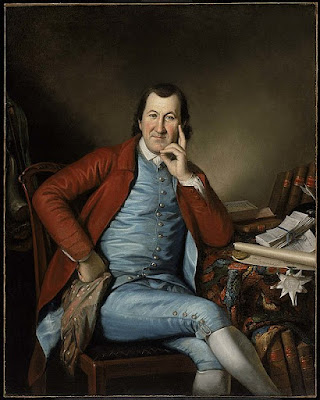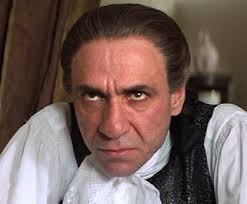This is a reprint of a column I ran three years ago, with minor updates. I hope it is helpful to you (and amusing too).
Things many people find difficult to do:
- Lose weight
- Follow directions
- Not give unsolicited advice on social media.
You can count me among "many people" when it comes to the first item. But with the other two, I know about their prevalence because I have been a victim of them.
A victim, I say!
Yes, yes, I occasionally give unsolicited advice, but it's always with hesitation. An explanation for why I'm wading in. An apology even. Other people, I've found, don't have such qualms.
An example (one of many): During the height of 2020 pandemic madness, I posted on Facebook that I had a lot of broccoli in my house but the dressing I'd gotten in my last grocery pickup didn't taste good. I mentioned the three other condiments I had at home (salsa, ketchup, and butter) and asked my friends if any of them would work with broccoli, as I had my doubts. (I hadn't thought of melting the butter--once that option was pointed out, it was a doh moment.) At any rate, I also made clear that I don't cook and had no other ingredients in the house, so I requested that my friends not make alternate suggestions of condiments to use or ways to cook the broccoli. I thought I was pretty clear.
Then the following happened. The conversation has been greatly condensed since I received more than 300 responses. Names have been removed to protect the guilty.
Friend A
Roast it in the oven with olive oil and sprinkle some Parmesan cheese on top. It’s not hard. Or steam it and top with butter and a squeeze of lemon juice.
Me
Don't have olive oil, cheese, or lemon.
Friend A
Ok—just steam and add butter. Do you have Italian dressing. You could use that as an olive oil substitute.
Me
Nope, I don't.
As you can see, I was calm at this point, merely reminding Friend A that I didn't have some of the items she suggested I use.
Friend B
A nice, sweet balsamic vinegar. I like white balsamic.
Me
I don't have vinegar (and I don't like it either). More for you!
See how pleasant I was? This was early going.
Friend C
I roast broccoli with garlic and chopped up bacon.
Me
I have no garlic and I don't like bacon.
Friend D
Saute in some olive oil with garlic. Squeeze on some lemon before eating if you have some. Delicious. Or roast tossed in olive oil with a little garlic salt or sea salt or Goya adobo seasoning.
Me
I don't have any olive oil or garlic. Or lemon. Or sea salt or adobo seasoning. And sauteing and roasting means cooking. I don't cook.
Friend E
Add it to something you like ... or, as others have said, butter is good, and I'd add some seasoned salt. I like sprinkling blends from Penzeys Spices on various foods. Their Salad Elegant would be great on broccoli.
Me
I don't have seasoned salt. I wasn't kidding about the only possible toppings I have in the house. Butter, salsa, and ketchup.
Friend F
The extent to which people cannot comprehend the state of your pantry is deeply hilarious to me.
Me
I am less amused.
Friend F
Would definitely think twice about hiring your fb friends for a job that requires ability to follow instructions.
She (Friend F) wasn't kidding. But I steeled myself and kept reading the responses.
Friend G
I would boil some water, add a ton of salt, and blanch the broccoli for like 2-3 minutes. Then drain and chill.
Me
Blanch?
Friend G
Extremely easy. [Lists a link for how to blanch.]
Note to the reader: Not extremely easy.
Friend H
Really tasty: sliced zucchini or yellow squash, plus a red sweet pepper, sauteed in olive oil or butter with garlic and sweet red onion or green spring onions. Add a little basil for punch, but it isn't required.
Me[Mouth hanging open.]
At this point, I stopped responding to almost all the comments, most of which were suggestions of other things I should cook using food I didn't have in the house. Me. The person who doesn't cook and who certainly would not be going to the market for the suggested foods. (Add one picky eater who doesn't cook and the height of the pandemic and you got hell no.)
Occasionally, though, I became so incensed, I did respond.
Friend I
Saute in a pan, with ginger, olive oil and garlic, 1 T corn starch, and 1/4 cup of water.
Me
I DON'T COOK!
Friend G
This post has turned absurd, and I love it.
Me
That makes one of us
Friend J
Two of us! Sorry, Barb.
Me
It's like people are trying to give me a stroke at this point.
Can you feel the stress? Years have passed, and reading all these comments is aggravating me all over again.You may be wondering why I'm sharing all of this with you, other than for your amusement. It's because of something I often say: Everything is fodder. If you're looking for a story idea, mining current events or events in your own life is often a good place to start. I took this condiment conversation and my associated aggravation and put it to good use when the fine folks at Malice Domestic put out a call for short stories for their anthology titled Malice Domestic 16: Mystery Most Diabolical.
Five thousand words later, the idea became my short story "Go Big or Go Home," which is the lead story in Mystery Most Diabolical. The book was released in 2022. And yes, it has Facebook conversations just like the one above.
Regular readers of this blog may recall how I also mined my history before I wrote "The Postman Always Flirts Twice," which came out in the fall of 2024 in the anthology Agatha and Derringer Get Cozy. Being pressured to go on a date with your mailman isn't great, until you use it as starting point for a short story three decades later. Which reinforces the point of this column: everything is fodder!
To those of you with Macavity Award ballots, this postman story (which won the Agatha Award in April) is now a Macavity finalist in the Best Short Story category. I invite you to read it before the voting deadline at the end of this month. To read it online, click here.



























.jpg)



